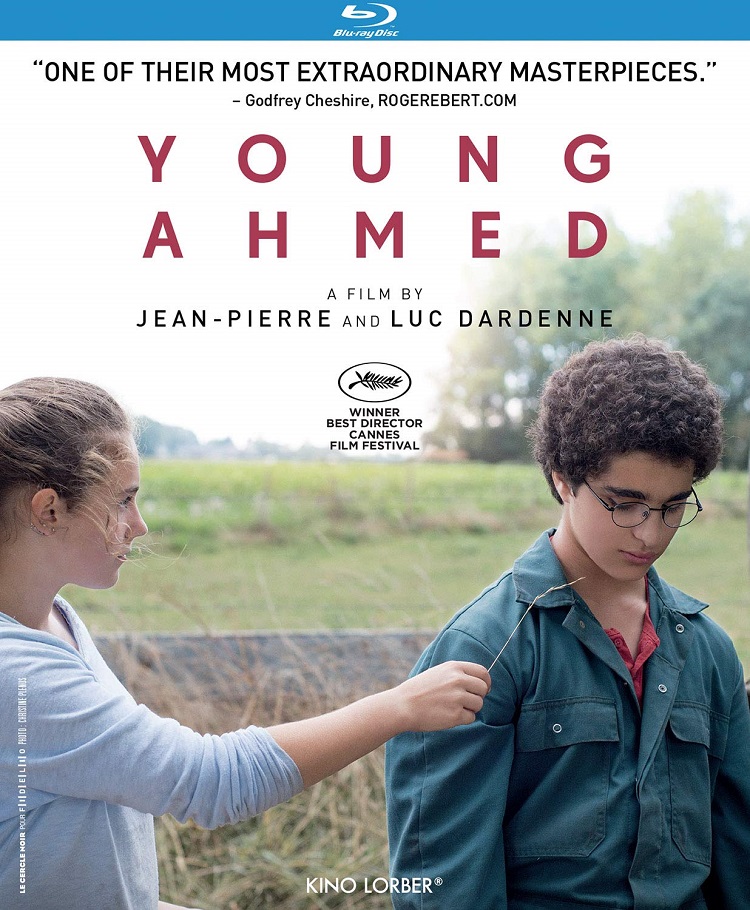
Written by Ram Venkat Srikar
It’s arduous to write about Young Ahmed without imposing personal views and judgements. Such is its concept. The Dardenne Brothers craft a film minimalistic on scale but speaks volumes about the world it is set in. The French film tells the story of Ahmed, a 13-year-old Muslim boy, on the misguided path of extremism camouflaged as religion. By the time we are introduced to him, this seed has already been planted deeply in him. A person named Imam, seems to be the influence. In the very first scene, he refuses to shake hands with his teacher, Inès, who has been teaching him since he was five. A true Muslim doesn’t shake hands with a woman, he says. The signs are all evident. The boy is willfully changing traits that’ve been imbibed in his lifestyle. His mother points out this difference in his behaviour. He no longer plays video games and tore all the posters on his wall. Religiously praying is all he cares about. His life at the moment is all about his religion.
We see the path he is taking. This could be a true story. Ahmed is a symbol of radicalisation, and Imam, the misinterpretation of religion. Stories similar to Young Ahmed could be in writing in our vicinity as you read through this. It’s a timely tale with brilliantly conceived sequences building the narrative. One of them being a discussion between Inès and the parents of her students. As she announces that she wants the students to learn Arabic, she is met with distant opinions. The handheld camera points at each person expressing their opinion. The scene ends abruptly with Ahmed bluntly accusing the teacher that she no longer cares about their religion and ethnicity since her boyfriend is Jewish, before walking out of the room without further explanation. By this time, we know how strongly his world view is diverging. But the boy himself with soft and innocent face, looks like anyone but a terrorist.
This is followed by a little scene where Ahmed is shown a video of his dead cousin. Imam tells him that the light behind the cousin’s picture in the video is a symbol of his soul being alive even after death. Ahmed keenly starts observing the video and appears so deeply engrossed into it that he hardly responds when his name is called.
Terrific performances invigorate this little film. Idir Ben Addi beautifully embodies the titular character by exhibiting the innocence while subsequently making us hate him but also feel pity for him considering how naive he is. He balances it masterfully with his face unfettered of expressions.
The filmmakers too, like Ahmed, do not express what the scene is supposed to convey. No emotion is underlined with music. There’s no musical score in the film. It could be because Ahmed loathes music, or that film is a life-like portrait and life has no background score. I elect the latter.
The screenplay is in no hurry to redeem Ahmed for his actions. You see him go in the misdirection. Time and again, we see glimpses of redemption of no use. It’s during these scenes that we realize how invested we are in the young boy’s life. After Ahmed ends up in prison after attempting to murder Inès, for the supposedly brief time, we can hardly read his mind. He could be falsifying his character and behaviour. Is he really a kid or a man? This dilemma is perfectly translated on to the screen.
The seed in his mind, though, we never see. Witnessing an adolescent go through crisis when he could be having a happy life like others of his age is timely. In a brilliant scene where Ahmed’s mother comes to visit him in prison, there’s little love from his end. As she weeps, he politely hands over tissues and says nothing else. His face displays no emotion. Right in front is the making of a stone cold killer, a 13-year-old boy. It’s a potent moment. The film is suffused with such moments.